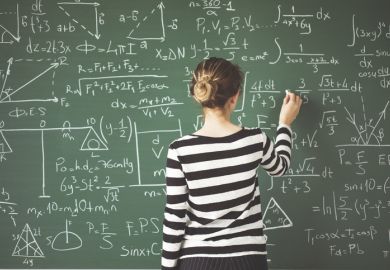Abraham Pais is probably best known to the general public for his book Subtle is the Lord, a truly magnificent account of the life and science of Albert Einstein. Indeed, as Pais records, his publisher called to tell him that he had "reached the masses" - the title of his book was now a question in the board game Trivial Pursuit. But, as this fascinating autobiography makes clear, his successful career as a biographer and historian of science is a second career, not begun till Pais was in his sixties. His primary career was as a theoretical particle physicist concerned with understanding the strong and weak nuclear forces and with bringing order to the myriads of so-called "elementary particles" discovered in the 1960s. Since I used to be a particle physicist, it was with surprise that I read that Pais was known as "the father of particle physics". How could I have not known this? After reading about his major achievements, I now realise that much that I took for granted when learning the subject at university had been put in place by Pais. His achievements were already part of the furniture of particle physics.
Why does one read autobiographies? The physicist and writer Jeremy Bernstein identifies two "limiting cases" - one by an individual who has led an ordinary life but who has observed it so closely and deeply that a fascinating story emerges; the other by an individual who has led a life full of interest but whose observations remain at a trivial level. The book by Pais corresponds to neither of these two cases. His early life in Holland during the second world war is both meticulously described and absolutely riveting. His account of the fate of Dutch Jews was largely unknown to me and this is overlaid with the story of how he escaped deportation and probable death by going into hiding. Late in the war, Pais was arrested by the Gestapo with a friend who was later executed. He was rescued by the extraordinary bravery of his non-Jewish girlfriend. His sister was not so fortunate: only in 1991 was Pais able to discover that she and her husband had died in the little-known Sobibor death camp. Incredibly, through all of this Pais continued to study physics. First, he had to beat a deadline introduced by the Nazis to prevent Jews from obtaining a doctorate; then, in hiding, Pais continued to study physics on his own and to discuss physics with what colleagues he could meet. Physicists are strange people.
After the war, Pais emigrated, somewhat unintentionally, to the United States and to the Institute for Advanced Study in Princeton. His experiences in being assimilated in the USmake interesting reading, especially his delight in understanding such puzzling headlines as "BUMS TIE" in the New York Daily News. However, most remarkable to me was to learn how key a role Pais played in the fabric of postwar physics. The record of his friends and acquaintances reads like a who's who of science. One of the most extraordinary statements follows his introduction of Niels Bohr as the first Nobel laureate he came to know personally. Pais then adds: "By the last count I have met 94 more." There is no doubt that Pais was an excellent and perceptive physicist who must have come tantalisingly close to gaining his own Nobel prize.
Pais was a favourite confidant of Bohr but also a long-time colleague of Einstein, who was a life-long opponent of Bohr's agnostic interpretation of quantum theory. Einstein and Bohr were obsessed with this problem and with a passionate desire to convert the other to his own point of view. Pais tells a wonderful story of them at Princeton. He was talking with Bohr in the next office to Einstein's. In the course of the discussion, Bohr faced the window muttering "Einstein" repeatedly to himself. Meanwhile, unknown to Bohr, Einstein crept into the room, heading for Bohr's tobacco pot, against doctor's orders. After uttering one last emphatic "Einstein", Bohr turned round and was confronted with the very spirit he had apparently summoned.
The story of Pais's life is liberally sprinkled with anecdotes and observations on the famous physicists encountered on his life-time "Grand Tour". We meet J. Robert Oppenheimer, fresh from his success in leading the atom bomb team at Los Alamos, in a new role as director of the institute. We learn not only about Oppenheimer's arrogant treatment of young academics and his "despicably cruel" alcoholic wife Kitty, but also about his remarkable response to an invitation from Pais to an all-male card party - "But I am not all male". There is no escape from the disgrace of Oppenheimer in the infamous McCarthy hearings but we hear also of a call from Leslie Groves, co-director of the Manhattan project, who expressed his personal sorrow at the outcome. I also liked Pais's briefer characterisations of physicists such as Richard Feynman - "A man who clowns while talking but who in fact is deeply serious" - and of Edward Teller as someone who cheats at cribbage. Teller is sometimes known as the father of the H-bomb and testified against Oppenheimer in the hearings. To complete the Los Alamos sub-plot, I was intrigued to discover that Pais was offered Klaus Fuchs's job as a director at Harwell in the UK weapons programme after Fuchs had been unmasked as a spy.
Taken as a whole, A Tale of Two Continents makes fascinating reading. Only occasionally does Pais stray too close to the personal for my comfort. Jeremy Bernstein, in his essay "The merely personal", traces the flood of "confessional" biographies back to James Watson's Double Helix. There, Watson, besides describing the science, was also candid about his interest in things other than science. Bernstein makes the case for steering a course between the Scylla of the "merely personal" (a phrase used by Einstein) and the Charybdis of the totally impersonal. Thus I am not sure I want to know details about Pais's operation for an aneurysm and I feel somewhat embarrassed to read of his obvious love for his son, grandchild and his new wife. But these are minor blemishes on what for me is a thoroughly rewarding encounter with one of the major players in the landscape of postwar particle physics, and one who is evidently a thoughtful, cultured and humane individual.
Tony Hey is professor of computation, University of Southampton.
A Tale of Two Continents: A Physicist's Life in a Turbulent World
Author - Abraham Pais
ISBN - 0 19 850199 4
Publisher - Oxford University Press
Price - £25.00
Pages - 511
Register to continue
Why register?
- Registration is free and only takes a moment
- Once registered, you can read 3 articles a month
- Sign up for our newsletter
Subscribe
Or subscribe for unlimited access to:
- Unlimited access to news, views, insights & reviews
- Digital editions
- Digital access to THE’s university and college rankings analysis
Already registered or a current subscriber?



